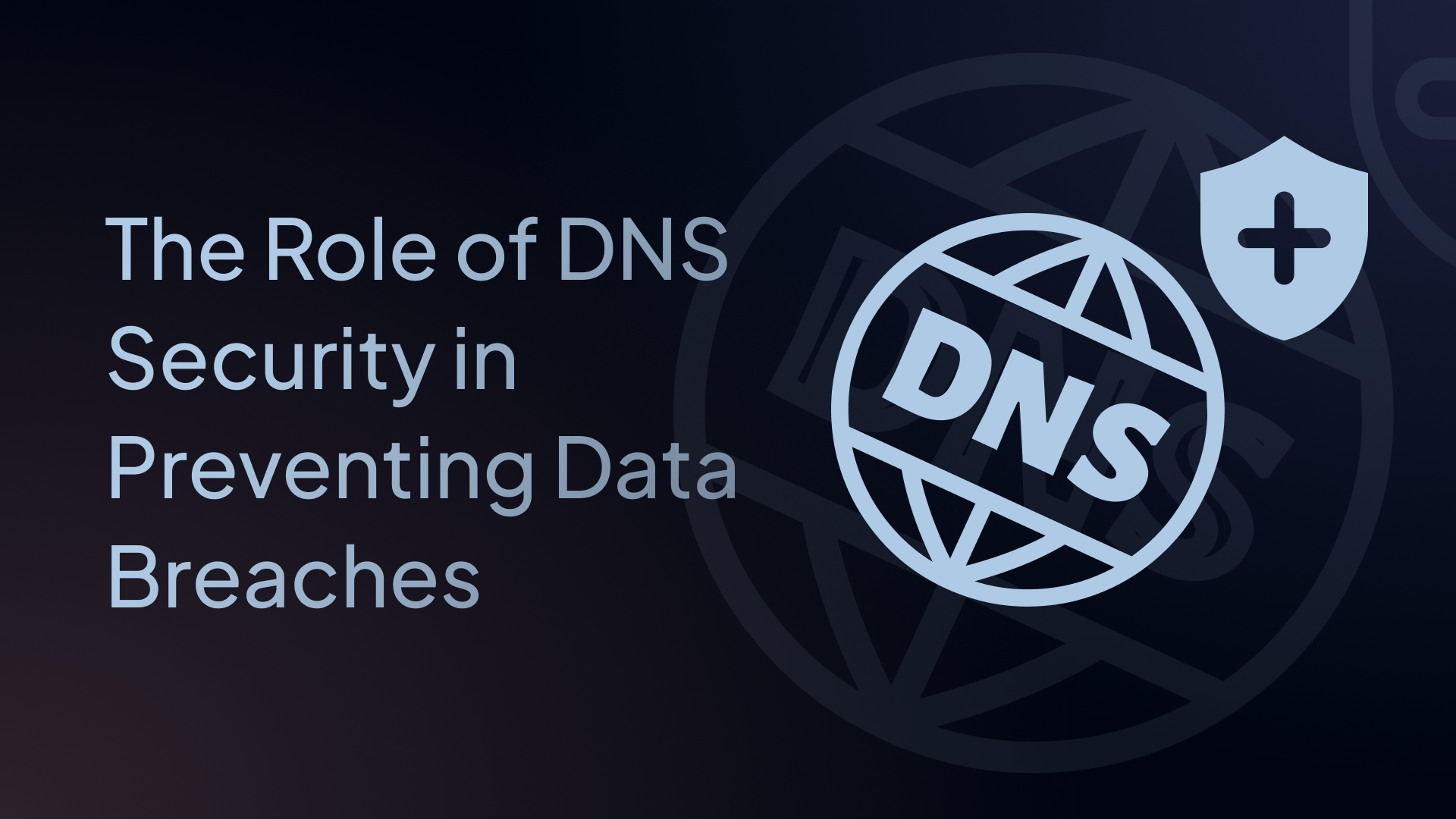The Role of DNS Security in Preventing Data Breaches
DNS is a critical, yet overlooked, component of your cybersecurity posture. Learn how to utilize DNS security to prevent data breaches.

High-profile data breaches dominate the headlines, costing organizations millions in fines, recovery efforts, and lost trust.
While firewalls and endpoint security get the spotlight, one of the simplest and most effective ways to stop breaches often goes unnoticed: DNS security.
Nearly every internet connection involves a DNS lookup, and it’s a powerful chokepoint that attackers often exploit, making the Domain Name System (DNS) a critical component of your cybersecurity posture.
Let’s explore how you can utilize DNS security to prevent data breaches.
How Data Breaches Begin
Data breaches rarely start with dramatic exploits. Instead, they often follow a predictable pattern. A phishing email, a compromised credential, or malware trying to connect back to its command-and-control server are very common data breach patterns.
DNS is involved in each of these cases:
- Phishing attacks depend on fake domains mimicking legitimate ones, which trick users into entering credentials or sensitive information.
- Malware infections rely on DNS to locate servers controlled by attackers.
- DNS tunneling lets hackers smuggle stolen data out of a network without being noticed.
In other words, DNS is part of the attacker’s toolkit. That means a single click on a malicious link can open the door to a full-scale breach if you don’t have protections in place.
Where DNS Security Mitigates the Threat
The same DNS that attackers abuse can also be used to cut them off at the source. The best DNS security solutions allow you to block threats before a connection is ever made, effectively becoming your first line of defense.
Key DNS protections include:
- DNS filtering to stop users from reaching malicious, suspicious, or unwanted domains.
- DNSSEC to ensure DNS responses haven’t been tampered with, protecting against cache poisoning and forged DNS records.
- Encrypted DNS (DoH/DoT) to keep queries private and shield against interception.
Because DNS sits at the start of almost every online connection, these controls give you a chance to disrupt attacks before they begin and reduce the risk of sensitive data ever leaving your network.
Why Traditional DNS Security Isn’t Enough
Firewalls, antivirus software, and intrusion detection systems all play critical roles, but they don’t inspect or secure DNS by default. In fact, many firewalls are configured to let DNS traffic pass through unchecked.
This blind spot explains why DNS is such a big target.
Your best bet? To deploy effective DNS security software to quell any possible threats.
How Control D Strengthens Your DNS Front Line
DNS security doesn’t need to be complex. With services like Control D, individuals and organizations can protect their DNS traffic without overhauling their existing security stack.
Control D provides:
- Real-time filtering to block phishing sites, malware, and unwanted domains.
- Customizable policies for different teams, offices, or home networks.
- Privacy-first protection that blocks ads and trackers, and lets you mask your IP address.
By controlling DNS, you can gain visibility into traffic patterns, reduce the risk of breaches, and build stronger compliance practices.
Protect Your Data at the First Step
Every breach has a beginning, and more often than not, it passes through DNS. That makes robust DNS security one of the most effective ways to prevent small mistakes from becoming catastrophic losses.
By securing this critical layer with solutions like Control D, you add an early-warning system and a protective defensive wall at the very gateway of almost every online interaction.

